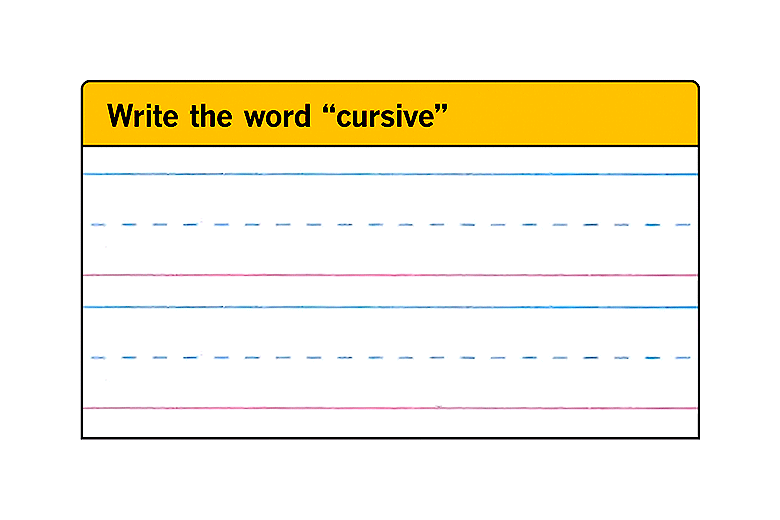Speaking Is Natural and Writing Is Invented : The Social and Private Aspects of How We Communicate With Each Other
- Share via
If you are reading these words, it is overwhelmingly probable that you are capable of communicating in two different modes: speaking and writing. Because we use words in both processes, we often tend to lump them together. But in fact they are very different, and the differences can be important.
To begin with, speaking is easy, writing is hard. For human beings, speaking is a way of life; it comes naturally. Speech, after all, is merely modified breath, and if we live, we breathe. Every normal infant begins to develop the mechanism of speech in the lalling stage with those delightful grunts and goos and gaas which are commonly labeled baby talk. Baby talk is funny because it sounds to us like a parody of speech. In fact, speech is just organized and patterned baby talk. As infants practice the manipulation of larynx, tongue, and lips they find themselves talking. It is natural and nearly automatic. No child, under normal circumstances, needs to be taught how to speak. Birds gotta fly; fish gotta swim, humans gotta talk. It’s easy.
Writing is hard. The spoken word is a gift from God; the written word was invented by human beings. Nobody learns to write naturally; it has to be taught, and requires the use of tools. It is not free and open and spontaneous, like breathing and speaking. To write is an act of limitation and control. We feel it in the very act of writing. The “writer’s cramp” that for many people accompanies extended periods of writing is caused by our tendency to grasp the pen much more tightly than necessary, to control it, as if to squeeze the words out of the reluctant instrument. You learned to do that when you were first trying to wield that giant pencil across the foolscap in grammar school. The pencil would not obey, so you had to grasp it tightly and force it to your will.
Social and Private
Speech is social and public; writing is individual and private. We learn to speak face to face with others. We talk only in two situations: when we are with other people, or when we are alone but wish we were with other people. Speech is always social. And because the sound of my voice can be heard by anyone within range, it is public. When I talk, I cannot discriminate between listeners; I cannot code my speech to be heard by some in proximity but not by others equally close. All speech has in some degree the character of proclamation, of public announcement. I may whisper, but I do so nervously, because I know that it is easier to block sight than sound and that even though I may not be able to see you, you may be able to hear me. Thus, even when you are in a safe place, alone with the person to whom you want to speak, it can be hard to speak private and intimate thoughts aloud.
Writing is individual and private. I learn to write by looking down at my own hand, not looking up into a human face. No one can hear what I write, and I can choose who will see it. After I have written it, I can tear it up, and the thoughts it contains will never reach another. While I must have others around me, or at least imagine them to be, in order to speak, I can write best when I am alone. Even if other people are around, I must shut them out to an extent while I write.
Speech is temporary; writing is permanent. While words I speak aloud are public, available to all within the sound of my voice, they remain so only briefly, for sound perishes in the air and leaves no trace. Writing survives. Unless I alter or destroy it, it assumes a life of its own and continues, irrespective of what I think or do, of whether I live or die. Writing is not only more permanent than speech; it is more permanent than the writer.
Because writing is hard and speech easy, we often choose not to write out of sheer laziness. We call rather than write simply because it’s easier. But because writing is hard and permanent, it seems somehow more important and weighty than mere talk, and this sometimes leads us to write when we have nothing to say, or when our ideas should be tested in the more ephemeral medium of conversation before being set to paper.
Because speech is social and temporary, we sometimes fail to think through what we really mean; because speech is easy, we sometimes speak too easily. Because speech is public, we sometimes hold back from speaking private truths which need to be spoken. It is hard to be honest about private truths in a public medium.
Trusting Their Diaries
Because writing is individual and private, and because we achieve it through the sense of touch, holding the pen between the fingers, it is easier for some people to write private, secret things than to speak them. People trust their diaries, sometimes more than they do their friends. Lovers who write letters share secrets that they never speak.
The very act of writing engages the ego in a unique and powerful way. When I speak or listen, I cannot see myself speaking or listening; my attention is focused on you. When I read, I don’t watch myself reading; I see only the words on the page. But in the act of writing I both see and feel myself writing. I monitor the movements of my hand across the page with my eyes, and with my skin, especially through the exceptionally sensitive skin of my fingertips. When I write, I watch myself writing and feel myself writing. Hence, a writer in the act of writing is necessarily self-absorbed in a way that is unique among communicative activities.
This can give the writer a sense of power and a kind of courage which can help get through a hard and demanding task. But it can also lead to disappointment. Often the product felt better than it reads.
When the writing is done, the product of the writer’s labor, the text, is outside both writer and reader. And as long as it stays outside, words bound to a page, it will be dead and flat. To come to life, it must take on the character of living speech. The spoken word is transient and fleeting, but it comes from inside the speaker, and it enters into the person who hears. When I speak, I send a word on my breath and all the life it has is its re-creation in the mind of the listener: mind to mind, heart to heart, person to person. Speech is thus ultimately personal in a way that writing is not. And so those writers who write best--a memo, a novel, a set of assembly instructions--are those who hear the words as they write. In the best writing, the reader can hear the writer breathe. It’s almost like being there.


